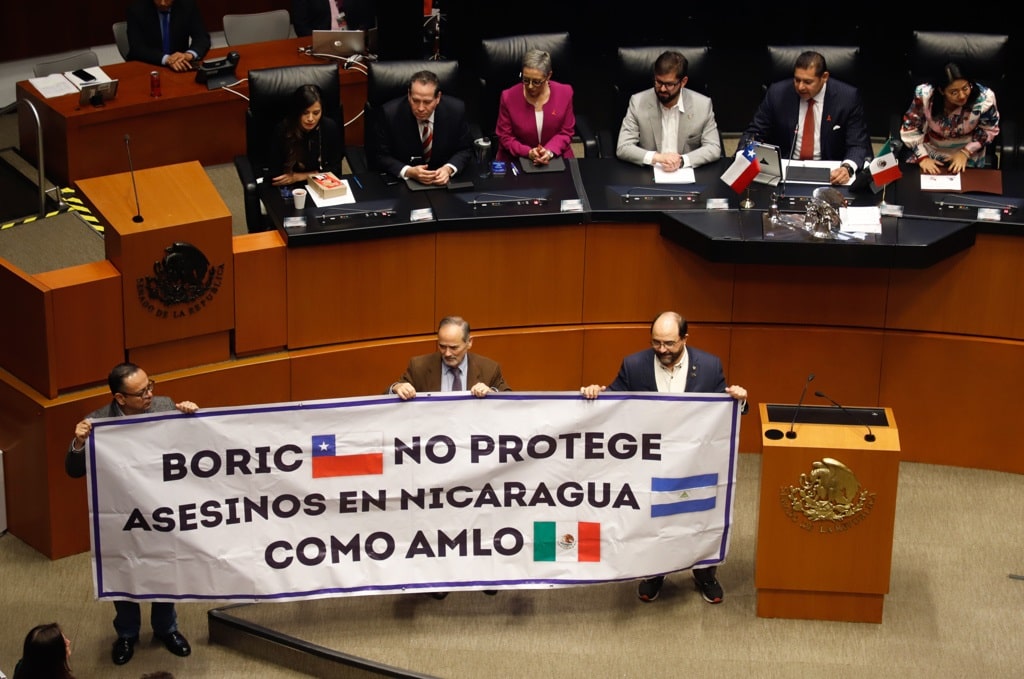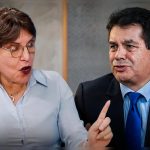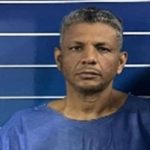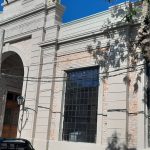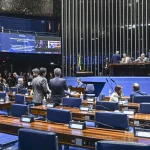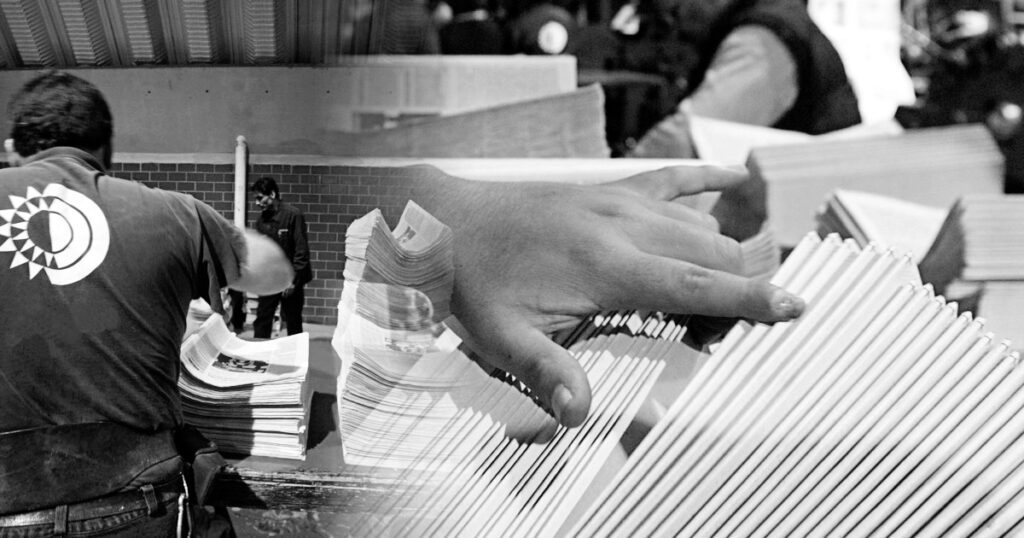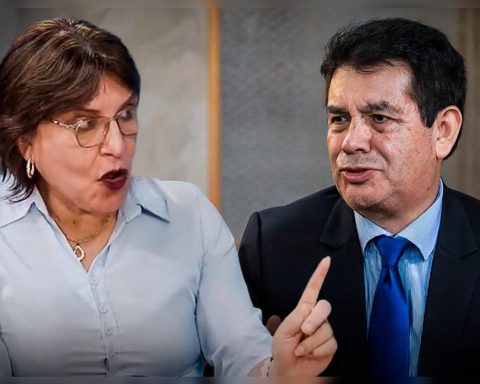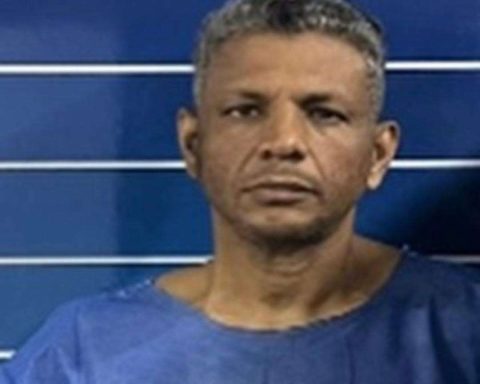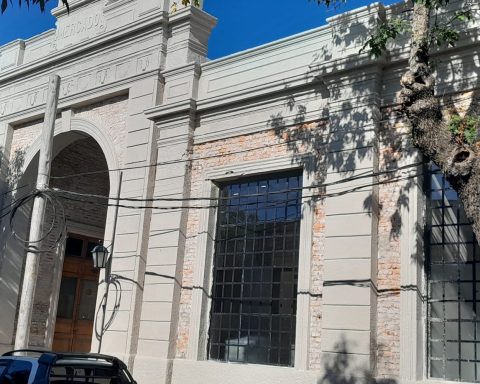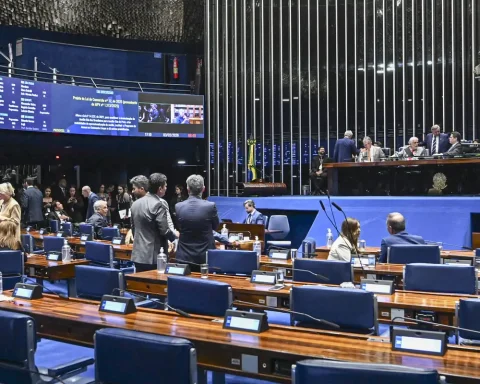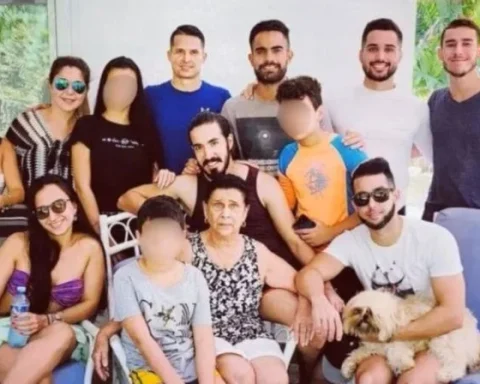The Chilean President, gabriel boricwas surprised during his courtesy visit to the Senate of Mexico, by a protest by three senators who advanced to the front of the rostrum, and displayed a banner that read: “Boric does not protect murderers in Nicaragua like AMLO” .
One of the three protagonists of that act of protest was Senator Emilio Álvarez Icaza, andHuman rights expert and former executive secretary of the Inter-American Commission on Human Rights (IACHR), who was interviewed on the show This week about the message of your complaint.
Álvarez Icaza is a strong detractor of the foreign policy of the Government of the Mexican president Andres Manuel Lopez Obradorwhom he describes as “submissive and ignorant” with the violations of human rights and democratic freedoms in Nicaragua and Venezuela.
Unlike@gabrielboric,
@lopezobrador_ratifies its support for the Nicaraguan dictator@DanielOrtegasa.They do not matter the violation to #HRDpersecution, imprisonment or murder of opponents.
@gpplural @Presidencia_cl pic.twitter.com/vcybQSfQil— Emilio Álvarez Icaza Longoria (@EmilioAlvarezI) November 25, 2022
The legislator makes clear his indignation with what he calls the “painful prostitution of the Sandinista revolution” carried out by Daniel Ortega, but affirms that his dictatorship, which is sustained due to repression and political violence, will fall as happened with the family regime somoza.
You participated in a complaint about the repression in Nicaragua, while an appearance by the President of Chile, Gabriel Boric, was taking place, also summoning the government of Andrés Manuel López Obrador. What is the political message of this appearance?
Essentially it has to do with three axes. The first is solidarity with the people of Nicaragua, who are experiencing dark and painful moments due to the betrayal of the dictator Ortega, who today represents the just reasons why he took up arms in the Sandinista revolution, today unhappily and painfully prostituted. I am from that generation that grew up hoping for a continent free of dictatorships that Nicaragua inspired. Today, the Nicaraguan dictatorship abuses, mistreats, tortures and murders. We who form the Plural Group (this server, Senator Germán Martínez and Senator Gustavo Madero) decided to make a gesture of solidarity, denouncing Ortega’s murderer.
Second, to denounce what is happening in Nicaragua, from the point of view of consistency with human rights. Gabriel Boric has decided, in an act of consistency, not to be silent, not to close his eyes to what is happening in Nicaragua. It is particularly important, because Gabriel Boric comes from Chilean communism. He won the Presidency with a center-left coalition. Regardless of his ideological political origin, he assumes a critical stance consistent with the issue of human rights, and that has put him on the horizon of the Latin American debate. It seemed to us an important moment to make the contrast known.
There I go the third axis. The contrast between what Gabriel Boric has done and what Andrés Manuel López Obrador has done. Mirrors help to see the real dimension of things, beyond the speeches. Gabriel Boric has decided to raise his voice and denounce what is happening with human rights violations and political persecution in Nicaragua in terms of political prisoners, persecution of the press, murders of students, imprisoned opposition leaders, closed universities, closed media , bishops persecuted, religious cornered. In other words, everything that we understand as the basic rules of a democracy and, in terms of freedoms and rights, is absolutely threatened and restricted in Nicaragua.
In that appearance, President Boric once again said that one cannot forget, one cannot look away from the crisis in Nicaragua. However, the government of President López Obrador continues to maintain its silence or complacency. In that message, you also sued the López Obrador government, until breaking relations with the Ortega dictatorship. What do they really expect from the government?
We have done so because, unfortunately, Mexico, through the López Obrador government, has assumed a role of complicity with the Ortega dictatorship. Mexico has decided to close its eyes, and not only in bilateral relations. There are multilateral forums, such as the OAS, where there have been resolutions against human rights violations in Nicaragua, and Mexico has been ignored. Exactly what President Boric said, that you cannot turn your face away from the politically persecuted. I am pleased that the Chilean president has decided to take up the issue and not turn it around, but this issue in the Mexican Senate is not the first time we have insisted.
A week ago, the Mexican Foreign Minister Marcelo Ebrard was in the Senate. We insist that the Mexican government has to break relations with the Ortega dictatorship, with this prostitution of the revolution that it painfully represents. We believe that Mexico must be consistent with its history, when, for example, it broke relations with (Augusto) Pinochet, when it broke relations with (Francisco) Franco, when it broke relations with (Anastasio) Somoza.
It is a constitutional mandate, because the Constitution establishes human rights as a guide for Mexico’s relations with the world. The Government of Andrés Manuel has been oblivious and submissive. That is why it takes refuge in the so-called ‘Estrada Doctrine’, of not interfering in the internal affairs of other countries, it is that it is not going to do it, but we hope that this gesture that was made in the Mexican Senate will serve to ignite the spark, to that many more make expressions of solidarity, to put pressure not only on the Mexican government, but also on the government of the murderer Ortega.
How did the rest of the political community, the other benches in the Mexican Parliament, public opinion, react to this location?
The government of Andrés Manuel López Obrador has a discourse and a narrative that we could even describe as aggressive in terms of human rights, but in practice it has nothing to do with it, both in Mexico and in its foreign policy. Mexico is experiencing a very severe human rights crisis. In international forums, Mexico has stopped playing a leading role. Today that leadership is held by people like Gabriel Boric, who denounces what is happening in the area of human rights, or people like Gustavo Petro, who has decided to say no to militarization.
Andrés Manuel was expected to play a leadership role, and has been nothing more than a troupe for serious human rights violations in the region. That is why there has been a reaction, first of great surprise and then much echo, with our complaint. It had an enormous impact in the national press, on social networks, in diplomatic forums.
It had enormous scope in terms of being able to take this up as a line of action in the Mexican Senate. There was a very positive reaction when the Chilean president touched on the subject of Nicaragua. He was cheered. It was an excellent speech, because it talks about consistency, feminism, violence, inclusion. He talks about what we want and expect from a government that is said to include those most in need. President Boric had the ability not to evade the issue. It is time to once again organize solidarity with the tens of thousands of Nicaraguans who have left their homeland due to persecution.
Could this have any impact on the political future of internal political competition? I am referring to the potential candidates to succeed López Obrador. Are you going to continue this current policy or could you modify it and what perspectives are there from the angle of the Mexican opposition?
There is no doubt that the discussion of foreign policy is an issue that is present on the political agenda in Mexico. López Obrador’s absences from international forums; his mediocre leadership, submission to the United States, be it (Donald) Trump or Joe Biden, silence in the face of serious human rights violations in Nicaragua or Venezuela, the hypocritical contradiction of supporting measures such as the Mexico-United States- treaty Canada and then fighting with its partners, the loss of opportunities in the generation of new economic alliances, are part of a critical agenda regarding Mexico’s place in the world.
It is very shameful the role that Mexico plays in doing the dirty work for the United States, containing the Central American migration. Today Mexico deports more Central Americans than the United States, today the humiliations in Mexico –very sadly– are worse than those experienced in the United States.
Those who compete for the presidential candidacy in Morena have decided to distance themselves from the policies of López Obrador, who has the absolute hegemony of the party. I start from the hypothesis that hopefully the people of Mexico will punish those who have deceived them so much at the polls. I hope it is not then a government of continuity.
A little over a year ago, on this same program, you gave an interview in which you analyzed the crisis in Nicaragua, and precisely said that Daniel Ortega would be the leader of the counterrevolution in Nicaragua today. That interview was widely disseminated and many people reproduced it on social networks, including the sociologist and economist Irving Larios, who months later was kidnapped by the Police. Then a political trial was opened against him in which one of the tests to convict him, and for which he is in jail, is for having reproduced the opinions that you offered about Nicaragua. What is your opinion of this criminalization that has been made of his opinion and on the other side of the freedom of opinion of Irving Larios?
I am outraged and offended that the repressive and dictatorial government of Ortega locks people up for spreading an opinion. It seems that all they want is applause and deceive people that there is no criticism. It is absolutely undemocratic. It hurts me that this happens to Irving, like anyone else.
I worked at the National Center for Social Communication, a Mexican civil association that was dedicated to disseminating everything that happened with the Nicaraguan revolution. I am one of the people who were trained in Mexico by making known what was happening with the heroic deed of the Nicaraguan people. I am from the generation of Mexicans in which many friends went to Nicaragua in solidarity. I find it shameful, what Ortega is doing today with his wife in Nicaragua is an act of brutal moral and ethical human corruption. He is a little dictator with banana dreams.
As executive secretary of the Inter-American Commission on Human Rights, I learned first-hand about human rights violations and humiliations in Nicaragua. I am deeply outraged and it hurts me, and that is why we are going to raise our voices whenever necessary. Ortega believes that by repressing he will continue. So Somoza believed. Ortega today represents the counterrevolution. He is doing precisely all the kinds of things against which a people rose up and I have no doubt that there will be a time again, as the hope and teaching of the Nicaraguan people has done, that they will recover their freedom.
